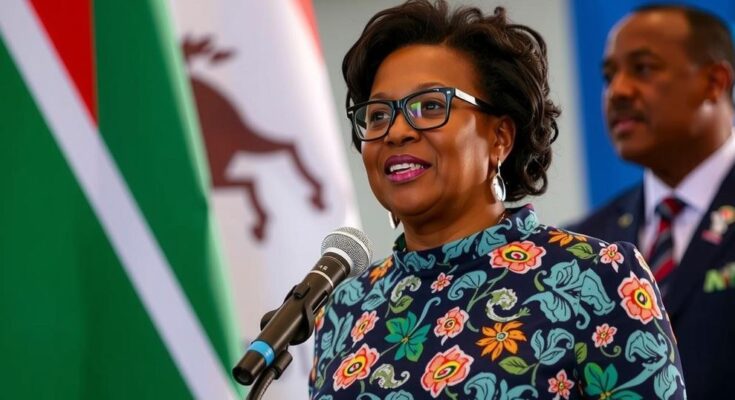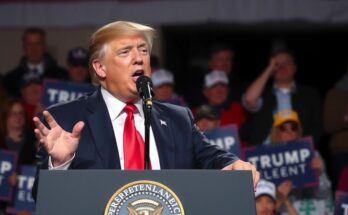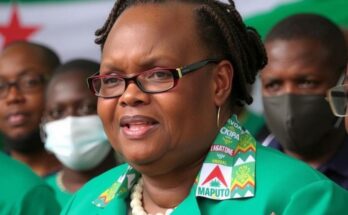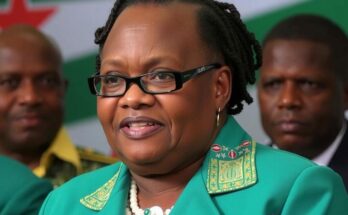Vice President Netumbo Nandi-Ndaitwah leads initial results in Namibia’s presidential election, which has faced major technical issues, prompting a three-day voting extension. Opposition parties dispute the legitimacy of the results, citing illegalities, and plan to legally challenge the election outcome. SWAPO’s long-standing governance is being tested amid economic challenges and public dissatisfaction.
In early election results, Namibia’s ruling party candidate, Vice President Netumbo Nandi-Ndaitwah, is in the lead amidst significant technical issues that led to a three-day extension of voting. The opposition has raised concerns about the legality of these extensions, claiming they undermine the election’s integrity in a country noted for its stable democratic processes. Approximately 220,000 of the estimated 1.4 million votes have been counted, with Nandi-Ndaitwah receiving about 56% of the vote, while her closest rival, Panduleni Itula from the opposition, trails with 27%. Namibians participated in elections to choose both their president and parliamentary representatives within a nation facing high unemployment rates and economic challenges. The SWAPO party, which has governed Namibia since its independence in 1990, is now confronted with growing discontent among its citizens, especially among the youth affected by economic hardships and governmental corruption. In response to the electoral issues, the opposition parties plan to challenge the election results legally, insisting that the election process must uphold democratic standards across socioeconomic classes. The Electoral Commission of Namibia has dismissed demands for a rerun of the election, stating that it will proceed with the current results despite the controversies.
Namibia, located on the southwest coast of Africa, has enjoyed a reputation for smooth electoral processes since gaining independence from South Africa’s apartheid in 1990. However, the recent presidential election has raised alarm bells due to technical glitches, including a shortage of ballot papers, prompting officials to extend voting by several days. The SWAPO party, ruling since independence, faces rising discontent due to economic challenges, notably among younger demographics, as they express frustration over high unemployment rates and allegations of corruption. This election is particularly notable as Vice President Netumbo Nandi-Ndaitwah stands on the verge of possibly becoming Namibia’s first female president, a potential milestone in the region’s governance landscape.
The presidential election in Namibia, characterized by significant technical difficulties leading to extended voting periods, has resulted in Vice President Netumbo Nandi-Ndaitwah emerging as the leading candidate. However, the opposition challenges the integrity of the election process, vowing to contest the results in court. With the ruling SWAPO party under scrutiny due to economic discontent and accusations of corruption, the election outcomes may have profound implications for Namibia’s democratic future.
Original Source: abcnews.go.com




